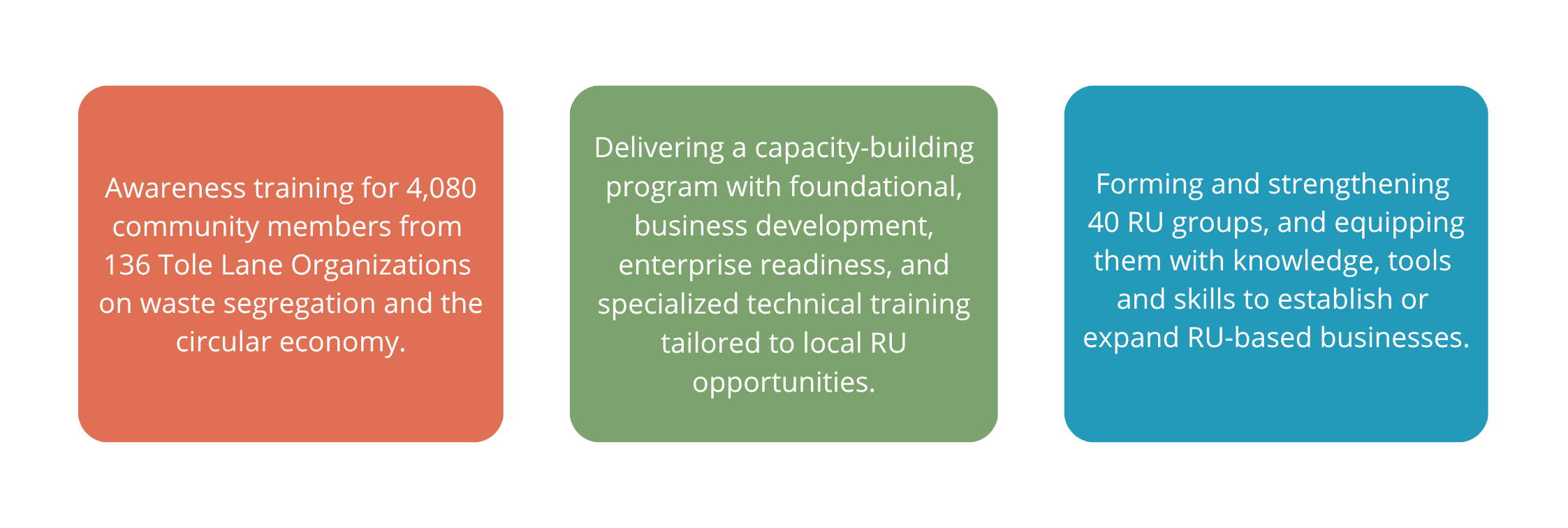
Pokhara
Green Job Creation through Recycling and Upcycling in Pokhara (GCRU) Project
Pokhara Metropolitan City, like many cities in Nepal, is facing a growing waste problem due to increasing urbanization, consumerism and a system that encourages throwing things away after use. This places immense pressure on local waste management systems along with contributing to environmental pollution and missed opportunities for sustainable job creation.
The Green Job Creation through Recycling and Upcycling (GCRU) project responds to this need by promoting the green economy with the establishment of recycling/ upcycling (RU) enterprises based on the circular economy model.
The project aims to achieve its goals through three interconnected areas of intervention: (1) policy and coordination, (2) promotion of RU enterprises, and (3) community empowerment. At the community level, the project will raise awareness about waste collection and segregation to ensure a clean and consistent supply of materials for these enterprises. All activities will be carried out in close coordination with Pokhara Metropolitan City to ensure effective implementation and long-term sustainability.
As part of the project, CREASION is implementing a focused 6-month assignment designed to empower local communities and promote the development of RU enterprises. Key activities under CREASION’s assignment include:
































